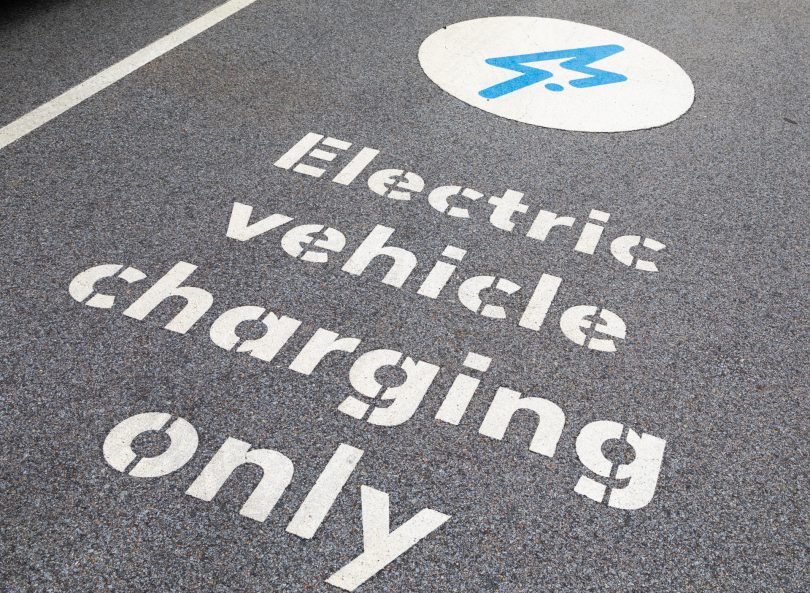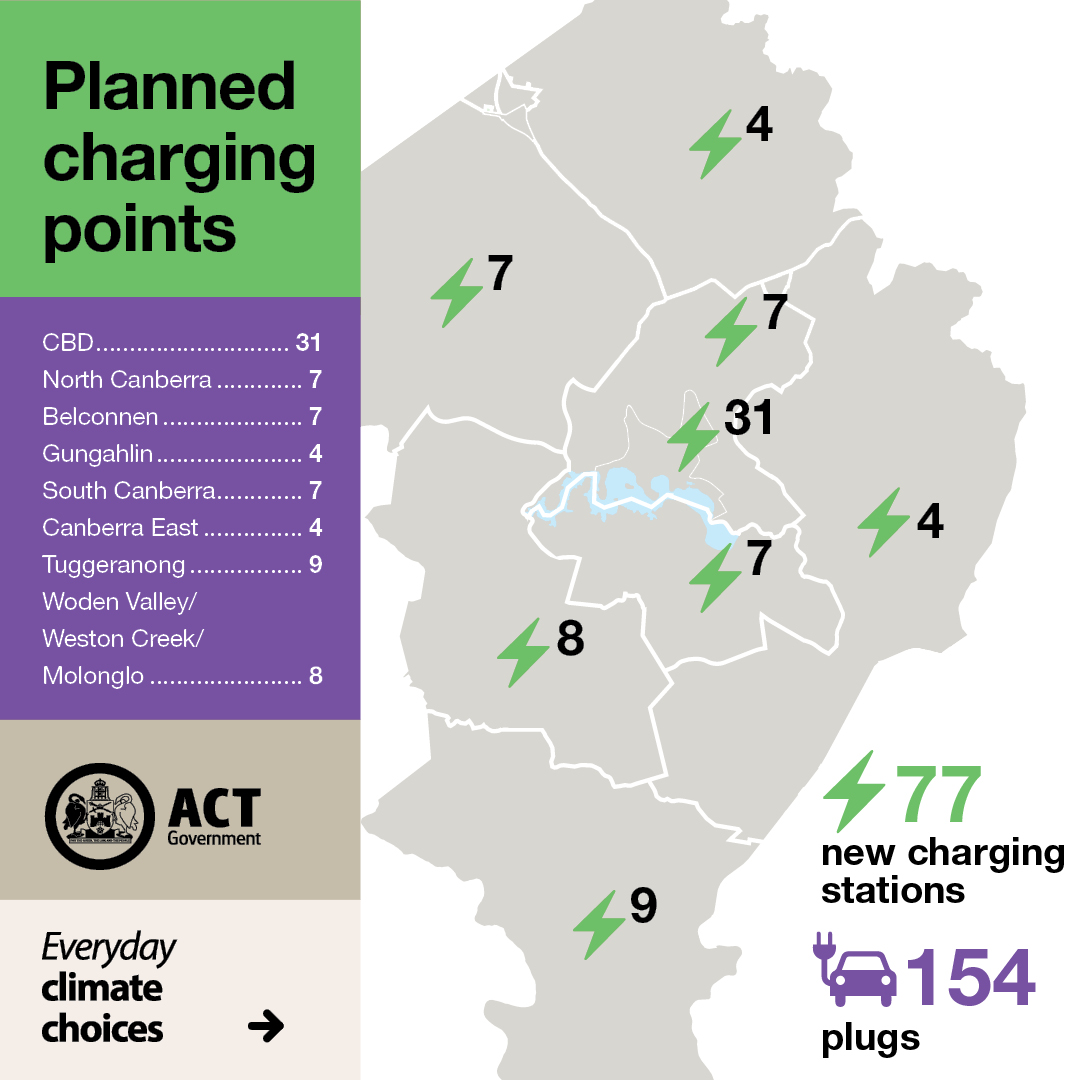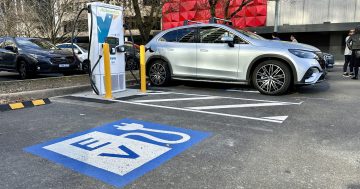
There will be more than 100 electric vehicle chargers to plug into across the Territory by the end of next year. Photo: Michelle Kroll.
Canberrans could be able to plug in their electric vehicles at more than 100 public charging stations across the Territory as early as next year.
Currently, there are around 30 chargers available for use.
The ACT Government will make what it’s calling a “substantial” increase to the network with an almost $1.5 million investment to fund an extra 77 charging stations.
Once the program is completed, 154 individual charging points will be available across the Territory.
Initially, the government had gone out to tender for 50 extra charging points.
The successful providers of the rollout will be Jolt, Evie Networks and Engie.

The proposed locations of charging points across the ACT. Image: ACT Government.
Construction will begin on the charging stations this year, with the majority anticipated to come online in 2023.
Motorists will have to pay to use the charging stations.
The need to boost the availability of charging infrastructure across the Territory was highlighted in the government’s recently released Zero Emissions Vehicle strategy.
That strategy committed the government to expanding the ACT’s charging network to at least 180 public charging stations by 2025.
Minister for Energy and Emissions Reduction Shane Rattenbury said being able to access fast, reliable charging stations would help combat range anxiety.
“[It] will provide electric vehicle drivers, and those looking to switch to an electric vehicle, peace of mind that they are able to charge their car when they need to,” Mr Rattenbury said.
“Most electric vehicle owners choose to charge their cars at home, but there is still a need to expand our network of public charging infrastructure.”
Mr Rattenbury said that despite the currently stronger demand for electric vehicle charging stations in the central regions of Canberra, the government intended to roll out chargers in every district.

Chief Minister Andrew Barr and Mr Rattenbury released the Territory’s Zero Emissions Vehicle strategy last month. Photo: Lottie Twyford.
Last month, Chief Minister Andrew Barr and Mr Rattenbury announced a swathe of measures intended to speed up the uptake of electric vehicles in the ACT.
These included commitments to banning new fossil fuel vehicles from being registered in the ACT from 2035 onwards and prohibiting new fossil fuel cars from being introduced to the taxi or rideshare system by 2030.
Alongside extending the stamp duty exemption to second-hand zero-emissions vehicles from August this year, car owners will receive two years of free registration for battery electric and hydrogen fuel cell electric vehicles.
Its unlikely stamp duty will ever return for electric vehicles, Mr Barr told reporters last month.
Eventually, the ACT Government would overhaul the Territory’s car registration system to be underpinned by the principle that the lower your transport emissions, the less you will pay.
The government has stressed it will be able to ensure equity as changes are made to the system, and that vulnerable, low-income households would not be left behind.
The strategy also foreshadowed that established apartment buildings would be able to access $2000 to retrofit charging infrastructure if it was not installed during construction.
By 2030, it’s forecast the ACT will need more than 500 publicly accessible electric vehicle chargers.
Original Article published by Lottie Twyford on Riotact.





